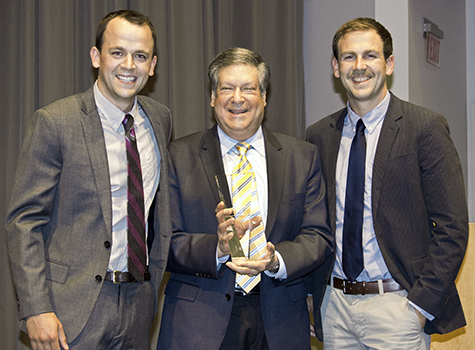
The annual Korsmeyer lecture honors a beloved former Washington University medical oncologist and researcher whose groundbreaking discoveries opened new doors to understanding and treating cancer. Korsmeyer died in 2005 of lung cancer. He was 54 and had never smoked.
Korsmeyer began his academic career at Washington University in 1986. Working in his laboratory in the Clinical Sciences Research Building, he quickly broke new ground with the discovery of a cancer-causing gene that prevents cells from dying via a process called programmed cell death, or apoptosis. Until that time, scientists had thought most cancers developed due to excessive cell proliferation.
In 1999, Korsmeyer moved to the Dana-Farber Cancer Institute and Harvard University, where he continued his research until his death. Today, he remains one of the most widely cited researchers in the world, with more than 85,000 citations and counting.
The Korsmeyer lecture is part of Siteman Cancer Center’s Basic Science Seminar Series. Since 2006, it has brought two Nobel Prize winners and seven other world-renowned scientists to the Washington University School of Medicine campus.
Schreiber’s studies have helped establish a clearer understanding of how cancer evades detection by the immune system and how the immune system might be engaged to make cancer a more controllable disease.
Schreiber recently was named director of the newly established Center for Immunology and Immunotherapy Programs, which aims to use the power of the immune system to fight infections and cancer.